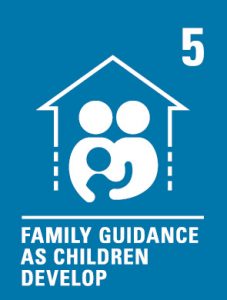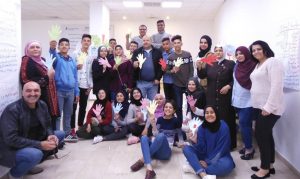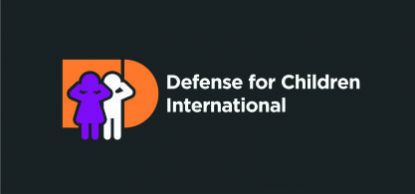 When two Palestinian children addressed the UN Committee on the Rights of the Child in June 2019, they brought to life one of the central tenets of the 30-year-old Convention on the Rights of the Child: children participating in the actualization of their rights.
When two Palestinian children addressed the UN Committee on the Rights of the Child in June 2019, they brought to life one of the central tenets of the 30-year-old Convention on the Rights of the Child: children participating in the actualization of their rights.
“Children have the right to freely express their views on all matters and decisions that affect them, and to have those views taken into account at all levels of society. It is the right of every child, without exception,” the committee states.
The CRC, which the State of Palestine signed on to in 2014, is the most widely ratified human rights treaty in history. At one time, it was incomprehensible in most countries to consider the period of infancy – a time marked by low survival rates – as a sacred time worthy of a state’s investment. Equally shocking was the notion that childhood extended all the way to the age of 18; or that regardless of class, race, or gender, every child was entitled to an education.
When the CRC was adopted in 1989, it established these and many more fundamental rights. It laid out the social, civil, political, and cultural rights of children. Moreover, it recognized children as human rights actors rather than mere recipients. Three years later, in 1991, the best interests of the child and child participation were the principles that propelled former executive director Rifat Kassis to found the independent, child rights organization, Defense for Children International – Palestine (DCIP).
Prioritizing children’s experiences and voices over adult experts remains a commitment that runs through all areas of DCIP’s work. For this reason, when DCIP led efforts to prepare a joint alternative report on the State of Palestine’s compliance with the CRC, children were involved from the outset.
In signing the CRC and the Optional Protocol, the State of Palestine accepted an obligation to respect, protect, promote, and fulfill the enumerated rights – including by adopting or changing laws and policies that implement the provisions of the CRC and Optional Protocol. It also obligated itself to periodic review.
DCIP facilitated open discussion sessions in Nablus, Hebron, Ramallah, and the Gaza Strip to gather children’s firsthand experiences about their access to rights. The discussions were child-led and inclusive across gender, geographic areas, and ability. In addition, two children were able to speak directly to the working group for the Committee on the Rights of the Child during a dedicated part of the 83rd pre-session in Geneva.

“The experience of representing Palestinian children at the United Nations was a pivotal point in my life,” said one of the two child representatives. “I now know that children are able to effectively participate and share their opinions. I wish that all children’s voices would be heard,” he added.
Overall, the report found that the State of Palestine has significant obstacles to overcome on a range of issues in order to achieve full compliance with the CRC. On the principle of participation, the report stated that children’s input is not sought out or used to inform government strategies related to education, healthcare, treatment, prevention, or rehabilitation.
Poignantly, in cases where children are victims of sexual violence or neglect, the report stated that children are not given the opportunity to express their views in proceedings related to interventions and other protection measures. In fact, the report noted that children’s right to express their opinions is denied during most legal procedures in Palestinian courts.
“Child participation is essential in a juvenile justice system as it demonstrates that the child in conflict with the law is also a rights-holder,” said DCIP’s Legal Unit Coordinator, Sawsan Salahat. “DCIP is proud to promote the value of child participation, which is one of the most important pillars of restorative justice.”
Outside of a courtroom or UN session, empowering children to become active human rights defenders can have a profound effect on a child’s personal development. DCIP’s Community Mobilization Unit has seen this firsthand in the course of facilitating child-led protection teams across the West Bank. Through this program, children learn how to document human rights violations and abuses. The teams then convert their documentation into advocacy campaigns or initiatives and meet with local decision-makers.
Among children whose transformation stood out was 14-year-old Omar N. from Ajoul Village, north of the West Bank city of Ramallah. Omar completed elementary school in his village, but then decided to leave the secondary school he attended next. His parents supported his decision, feeling the school did nothing to support their son, as a student with a cognitive disability. “They didn’t take good care of me at school. My classmates used to hit me and sometimes curse at me. The school didn’t even give me books,” Omar said, describing the harsh experience he endured.
He is currently enrolled in the Star Mountain Rehabilitation Center, a private institution operating in Ramallah that trains and rehabilitates Palestinian children and adults with intellectual disabilities. There, Omar also joined a DCIP child-led protection team that meets on the campus. The group stresses the right of children with disabilities to fully participate in their communities with equal rights. The team participated in a series of workshops that covered topics such as life skills, rights awareness, and documenting violations. DCIP also invited the children to participate in conferences and individual meetings with policymakers to directly voice their concerns.
Omar’s demeanor has visibly changed in the two years since joining the protection team, DCIP staff has noted. He now has a strong understanding of his rights and is not afraid to raise his concerns and needs in public meetings. He has also identified his goals for the future. “I want to be a carpenter and get a driving license,” Omar said.
Another child, 15-year-old Reem B., said that she had become aware of her own biases as a result of her membership in the group. She was hesitant at first while interacting with children who had cognitive disabilities, despite growing up with a brother who has a physical disability. After some time in the protection team, she told DCIP that the whole group had grown close. As a result of these friendships, Reem said that she feels a sense of personal responsibility to work toward equal rights in Palestinian society. “Sometimes a society oppresses those with disabilities,” said Reem. I will not be silent if a violation happens in front of me, I will defend their rights.”


